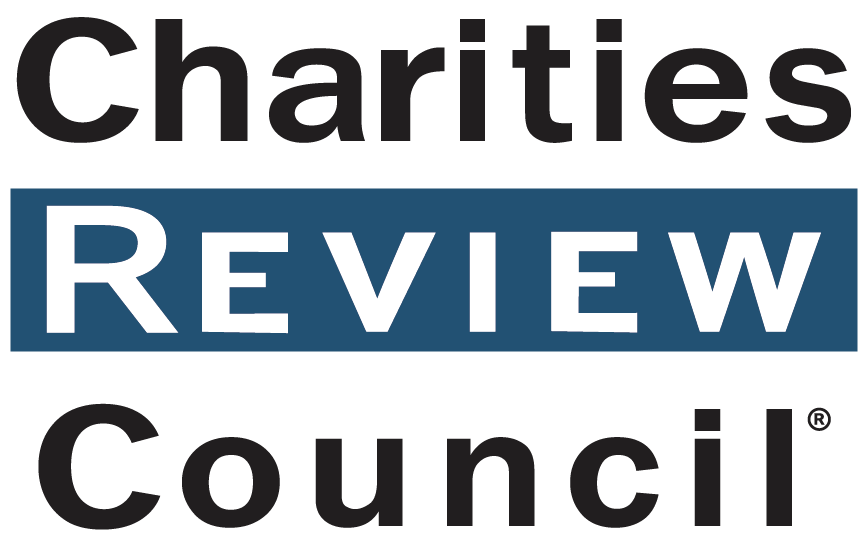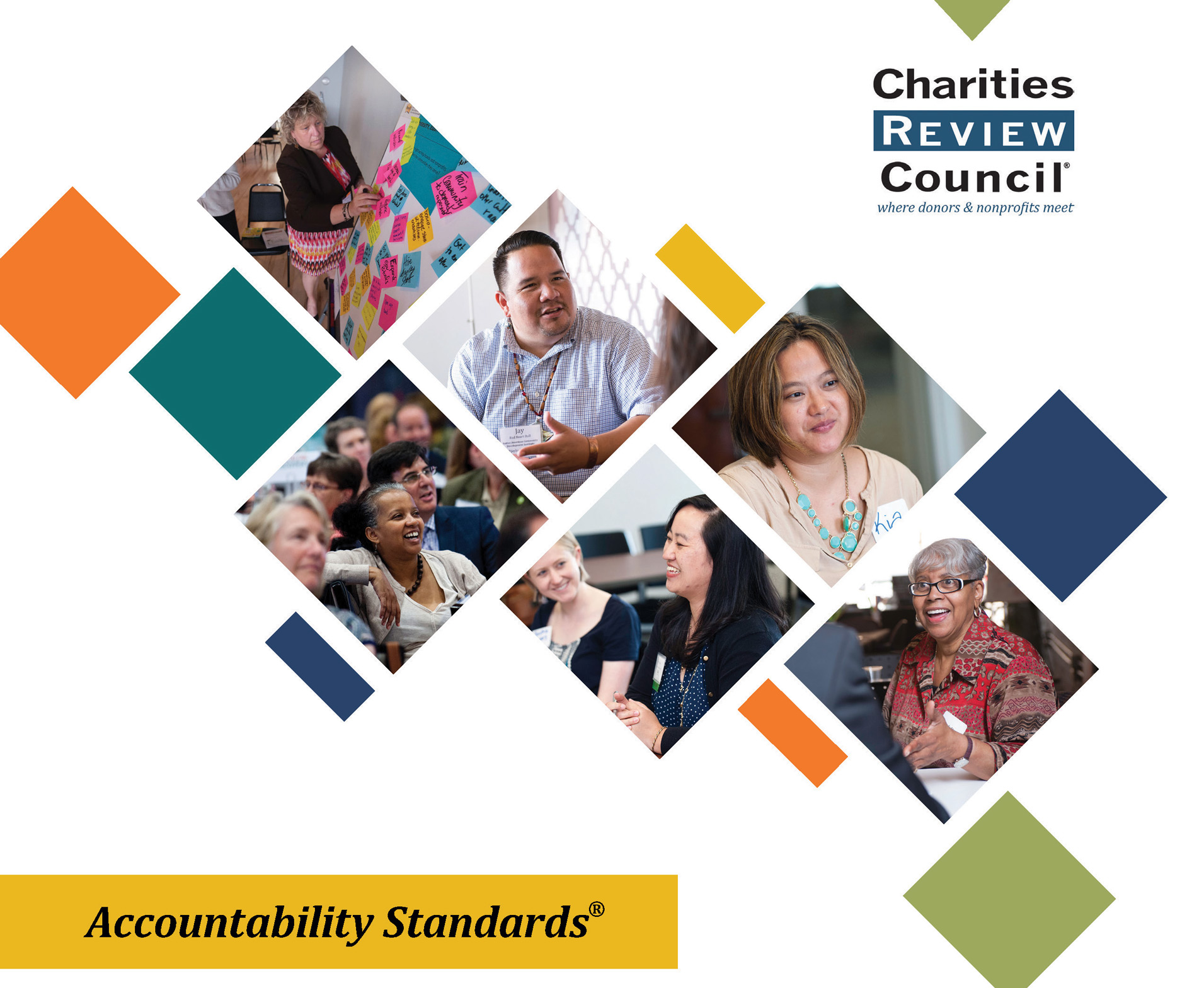This is part two of our four-part Accountability Standards® Blog Series. Sign up to receive future posts directly in your inbox, here.
In 2014, Charities Review Council piloted the rolling review of the Accountability Standards®, a process that would ensure the Standards remained relevant and meaningful to the community for the long-term. Last year, we gathered cross-sector leaders and subject-matter experts to help us review, rewrite, and reframe the Accountability Standards®.
Check out the new Accountability Standards® here!
For a more in-depth look at the revisions, we’ll be sharing a four-part blog series highlighting the four key categories, which include Public Disclosure, Governance, Financial Activity, and Fundraising. Sign up to receive these updates directly in your inbox.
Part II: Governance Accountability Standards®
Charities Review Council’s Governance Accountability Standards® help nonprofits showcase their internal strength. With a strong emphasis on board roles and responsibilities, the Governance Accountability Standards® make up nearly 50% of the Standards as a whole. These Standards provide guidance on organizational policies, board practices, and governance procedures so that together we can be better and do better.
In this round of review, we simplified and clarified the language, rewriting the Standards from an asset-based approach. The requirements for nonprofits remained the same. Here’s what you’ll see going forward…
Monitoring Mission and Strategy 
Philosophy
Regular board member reviews of the nonprofit’s mission and strategy assure both donors and partners, that a nonprofit’s finances are used responsibly and that the strategy is consistent with accomplishing its mission.
Standard
Annually, the Board of Directors will review the nonprofit’s mission and supporting strategies, which connect to a longer-term plan that clarifies program effectiveness and community impact.
Governing Document Review 
Philosophy
The governing documents of a nonprofit formalize many of the policies, procedures, and structures that demonstrate effective governance. By regularly reviewing the organization’s governing documents, a board assures relevance and alignment with current practices.
Standard
Every three years, the Board of Directors will review the nonprofit’s bylaws and organizational policies.
Diversity, Equity, and Inclusion 
Philosophy
Nonprofits are stronger when they include a variety of experiences, perspectives, and skills, and utilize practices that nurture creativity and equity. Diversity includes many dimensions, including but not limited to race, ethnicity, age, gender, cultural traditions, religion, sexual orientation, mental or physical ability, educational background, socioeconomic status, work experience, and so on. Being representative and inclusive of the population identified by a nonprofit’s mission is key to maintaining public trust. Nonprofits should build equity on every level and within every facet of their organization.
Standard
Every three years, the nonprofit’s board and key staff will:
- Collect information about its participants, volunteers, vendors, staff, partners, board, practices, and programs,
- Review (in a documented conversation) the collected information and ensure the organization itself and the strategies it uses are reflective of who it serves, and
- Identify related goals, opportunities, gaps, and progress around diversity, equity, and inclusion efforts.
Board Orientation and Assessment 
Philosophy
An effective Board of Directors is engaged in the nonprofit’s mission and possesses a sound knowledge and understanding of its operations and finances. It is committed to assessing and improving its capacity to govern.
Standard
The nonprofit will provide an orientation to new board members within one year of an initial election that includes a review of board roles and responsibilities. Additionally, the board will conduct an annual self-assessment to ensure its effectiveness and capacity to govern.
Board Length of Service 
Philosophy
A well-governed nonprofit provides a way to recruit members with new and different expertise and allows for greater participation by the communities it serves.
Standard
Each board member will serve for no more than five years without standing for re-election. The organization’s bylaws will set a limit on the number of consecutive terms a board member can serve.
Board Meetings 
Philosophy
A nonprofit’s board is responsible for the organization’s mission and programs. It is important that a board meets regularly to assure that members can make informed decisions.
Standard
The board of directors will meet at least four times each year while:
- Maintaining a quorum at each meeting, and
- Taking written minutes for each board meeting
Conflict of Interest 
Philosophy
Conflict of interests within a nonprofit can cause real or perceived public, financial and legal issues. A board’s deliberations should be independent and free of bias from directors or key employees who have or may be perceived to have financially benefited from the outcome and to foster inclusive management practices.
Standard
The nonprofit will consistently address director, officer, and key employee conflicts of interest in all facets of the organization by maintaining a board-approved policy that:
- Defines a conflicted relationship or transaction,
- Requires full disclosure when conflicts arise,
- Prohibits an interested party from approving or voting on a conflicted transaction,
- Requires annual written disclosure of real or perceived conflicts, and
- Is consistently enforced.
Additionally, the nonprofit will not provide loans to or relieve debts of any of its directors.
Separation of Roles 
Philosophy
The ability of a board and its officers to act independently is compromised when key officer positions are simultaneously held by the same person and/or there is too great a presence of paid staff on the board.
Standard
It is important that a board of directors is free of real or perceived conflicts of interest. For that reason,
- Only one paid staff member will serve on the board at any given time,
- Paid staff members will not serve as the board chair, and
- No board member will simultaneously serve as both the board chair and board treasurer.
Voluntary Board Service 
Philosophy
With public trust and transparency in mind, board members will serve voluntarily, not receiving compensation or payment for board service.
Standard
The nonprofit will not compensate board members for board service other than reimbursement of reasonable and accountable expenses directly related to their board service.
Chief Executive Assessment & Compensation 
Philosophy
An important duty of a nonprofit’s board includes regular discussion of the chief executive’s goals and compensation. Annual goal setting and year-end assessments against the goals establishes trust and understanding and identifies strengths and areas of opportunity in leadership development. Likewise, it builds public trust to assure that compensation decisions are carefully considered, and that pay is reasonable.
Standard
Annually, the Board of Directors will set performance goals with the Chief Executive, (whether paid or unpaid). The Board of Directors will set goals for itself if there is no acting Chief Executive. Additionally, the Board, or a committee to which it has delegated compensation authority, will obtain and review compensation data for comparable positions and consider whether the compensation is reasonable. This conversation will be documented in board or committee meeting minutes.
NOTE: Only individuals free of a conflict of interest in the compensation decision may participate in the discussion.
Federal Tax Filing Review 
Philosophy
A nonprofit’s success starts with its leadership. When a board takes responsibility for the accuracy and transparency of a nonprofit’s annual financial filing, nonprofits showcase their strength.
Standard
The board will conduct an annual review of the complete IRS Form 990 and all attachments within one year of its completion.
Whistleblower Policy 
Philosophy
To demonstrate accountability to donors and constituents and to prevent abuse, a nonprofit should provide a means for reporting on perceived or possible illegal practices or violations of organizational policies.
Standard
The nonprofit maintains a board-approved policy that:
- Communicates procedures for the reporting and investigation of complaints about perceived or possible illegalities, questionable practices, or policy violations,
- Provides for the confidentiality of the individual who reports the complaint,
- Protects the reporting individual from retaliation by the organization, and
- Allows staff to go directly to the board with any concerns that are within the board’s purview
Let us know what you think! Share your feedback at info@smartgivers.org. Stay tuned for part three of the new Accountability Standards® blog series, coming soon.
Questions about the new Accountability Standards®? Check out our FAQ’s here.


